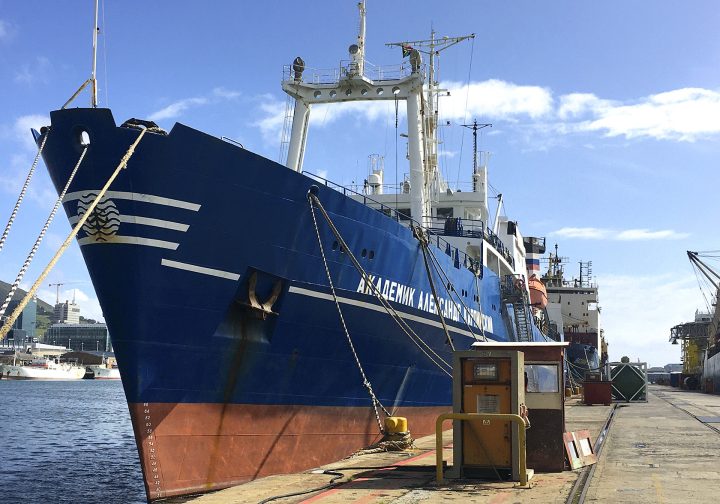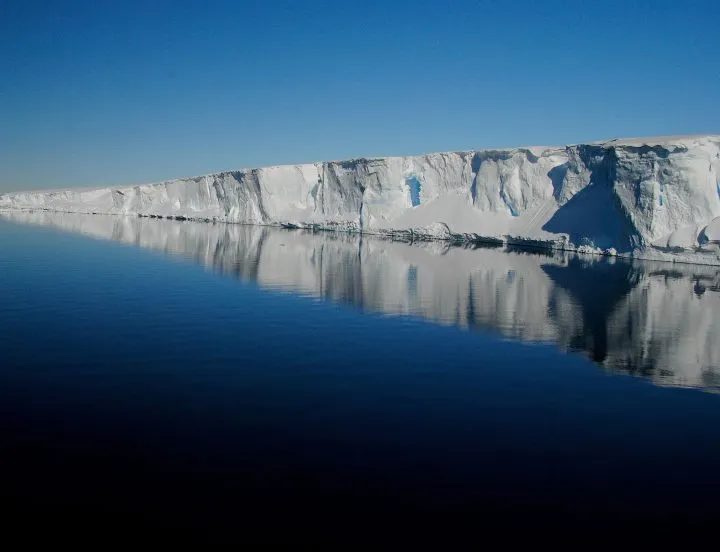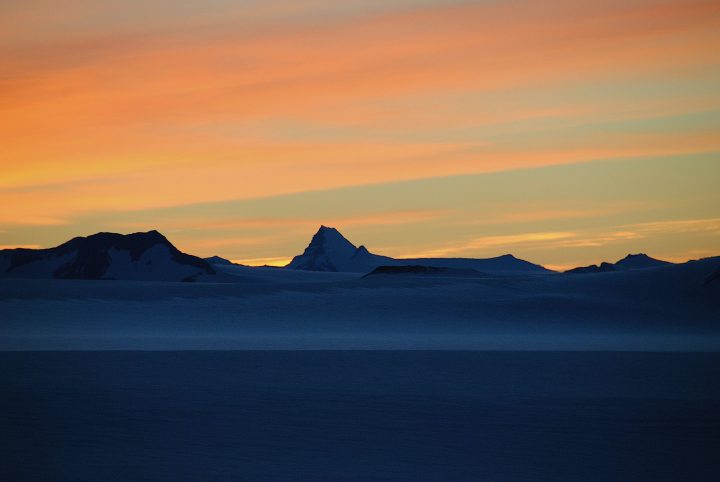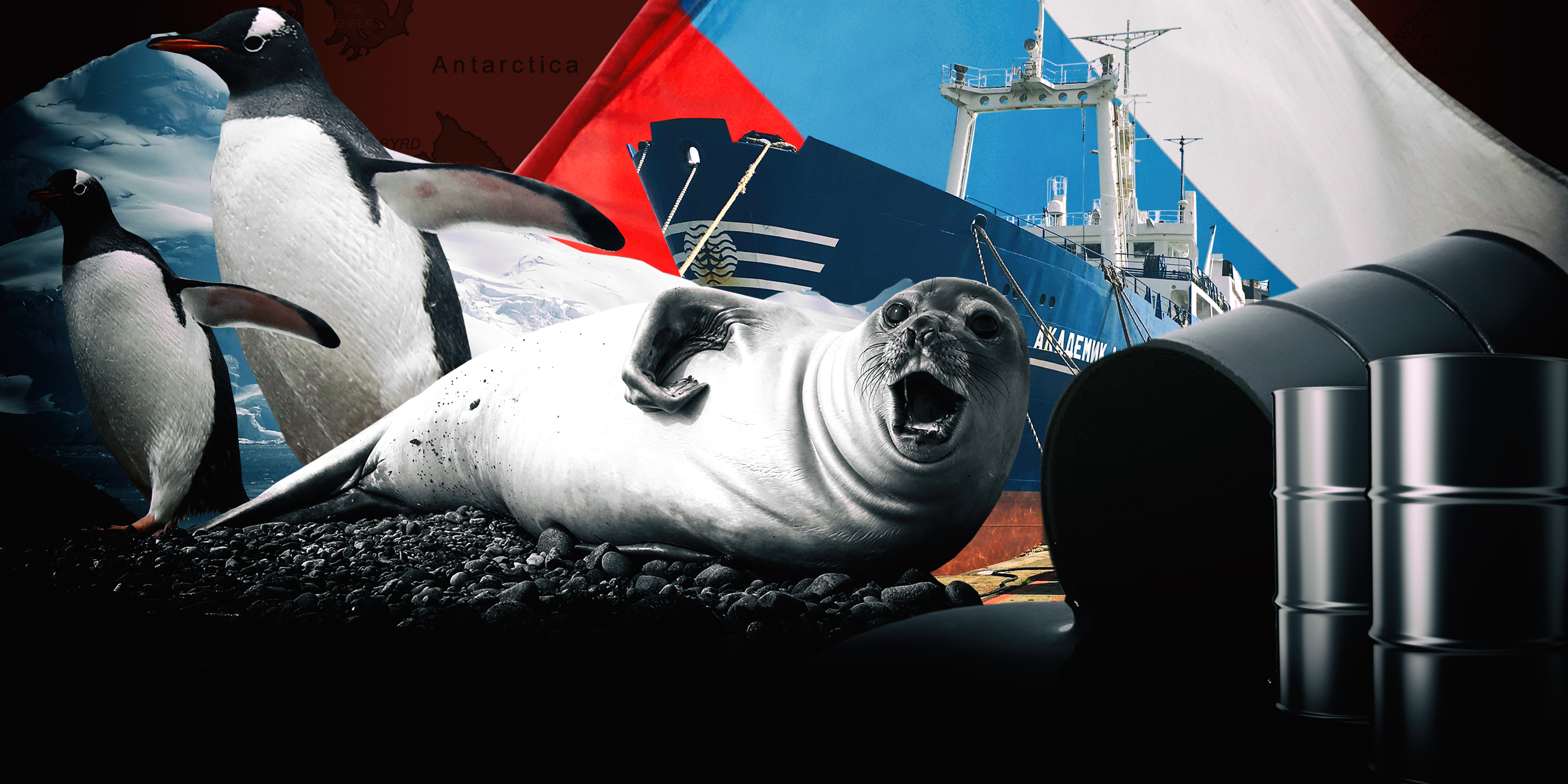In the second explainer edition published here, we demonstrate how this ban has failed to stop influential state actors in their tracks, and we reveal Russia’s grand vision for studying Antarctica’s mineral resources in decades to come. The Antarctic Treaty’s “freedom of scientific research” principle may even have given would-be energy entrepreneurs a head start in the threatened, icy wilderness at the bottom of the Earth.
Top five need to know:
- Russia has never stopped looking for Antarctic minerals via Cape Town since 1998.
- Gold, diamonds, uranium and more: oil and gas not the only threat.
- Official Russian sources reveal major plans to keep studying Antarctica’s minerals.
- Some oil and gas research is legal, but commercial prospecting is not, say experts.
- Despite the global climate crisis, Antarctic Treaty nations appear powerless, or even unwilling, to stop research activities that may be compared to prospecting.
Need to read:
- EXPLAINER EDITION, PART ONE: “Using Cape Town as launchpad, Russia boasts of supergiant oil fields in Antarctic wilderness”.
- WEBINAR PLUS REPORT: “Expert argues SA uniquely placed, has responsibility, to curb massive Russian oil and gas exploration interests in Antarctic”.
Russia has never stopped looking for Antarctic minerals via Cape Town since 1998
Adopted in 1991 after a years-long battle of international negotiations, the Antarctic Treaty’s globally known mining ban outlaws “any activity relating to mineral resources, other than scientific research”.
Yet, in “Part One: Battleground Antarctica”, we showed that Russia has scoured Antarctica’s oil and gas deposits as potential resources at least since the ban entered into force in 1998, and we laid bare the expedition diaries of possible prospectors.
We also reported that a stunning 500 billion barrels in hydrocarbon “resources” — the building blocks for oil and gas — might be hidden in supergiant oil fields beneath Antarctica’s Southern Ocean.
If recoverable, such reserves would be larger than any single country’s proven reserves — and yet the announcement went virtually unnoticed when it was published.
The date of the statement’s release? February 2020 — just as pandemic pandemonium swept across the planet. The scene? The Akademik Alexander Karpinsky, a Russian polar research vessel, while she was stationed in the port of Cape Town on the southwestern corner of the African continent.
 The 37-year-old research vessel in Table Bay harbour, August 2020. (Photo: Tiara Walters)
The 37-year-old research vessel in Table Bay harbour, August 2020. (Photo: Tiara Walters)
Gold, diamonds, uranium and more: oil and gas not the only threat
Travelling annually via Cape Town from St Petersburg under the flag of the Russian Antarctic Expedition, the Karpinsky features a dual-use “seismic” system designed to decode Antarctica’s fascinating geological secrets — while also mapping the seabed for oil and gas using seismic explosions.
In the Karpinsky’s case, this has involved — among others — an 8km marine cable with hydrophones that can “listen” to sound vibrations as the vessel’s airgun array bounces them off the seabed.
As we illustrate in the full-length editions of Part One and Part Two, that is how the Karpinsky has produced decades of data laced with conclusions about potential oil and gas reserves beneath the Southern Ocean, the climate-threatened waters that wrap around Antarctica.
A variety of other minerals have also been recorded on continental Antarctica. At the time of publication, a considerable inventory of results was available in Russian on the website of the Polar Marine Geosurvey Expedition (PMGE), the prospecting company that acts as the polar subsidiary for Russian state explorer Rosgeo.
For instance, PMGE’s 50-year anniversary report, published in 2012, applauds the Rosgeo subsidiary’s geologists for producing maps, including 2,5 million km2 “for the exposed mountainous regions of coastal Antarctica”. Citing potential resources such as gold, diamonds, copper-nickel, coal, iron ore and even uranium, this report credits the geologists for doing “a lot” to “assess the prospects” of Antarctica’s “mineral resources”.
We reviewed that report as well as PMGE's expedition diaries in their original Russian form. To date, this makes the “Battleground Antarctica” series the only detailed English public record of Russia’s mineral resource investigations in the southern extremes of the Earth over the past two decades.
https://www.youtube.com/watch?v=FRxHIjsfqtk&t=3024s
Investigative science journalist Tiara Walters and Professor Alan Hemmings, an Antarctic governance expert, discuss the consequences of potential oil and gas prospecting in Antarctica.
Official Russian sources reveal major plans to keep studying Antarctica’s minerals
It is none other than Russia’s “Reproduction and Use of Natural Resources” programme through to 2024 that appears to formalise Antarctic “geological knowledge” into a state policy of commercial exploitation.
“Expected results of implementation”, for instance, may flout the ban’s scientific limits by gleaning “geological information to ensure the geopolitical interests of the Russian Federation in the Arctic, Antarctic and the World Ocean”. Priority objectives of the 660-billion roubles ($9-billion) programme include “the reproduction of the mineral resource base on the basis of increasing the geological knowledge of the territory of the Russian Federation, its continental shelf, the Arctic, Antarctica and the World Ocean… ”
Our trove of documents on Russia’s Antarctic mineral plans include the following critical revelations:
- Russia’s new state Antarctic strategy up to 2030:
This outlines a concrete plan to push ahead with mineral resource investigations. Released at the end of June, the strategy’s action plan declares that it aims to “study the geological structure and minerals of Antarctica” by land, air and sea. The plan assigns the responsibility for carrying out these missions to the Arctic and Antarctic Research Institute as well as Rosgeo, among other state entities.
- PMGE’s explicit admission in 2015 that the intention of its Antarctic geology work was to flush out potential raw commodities for possible extraction:
Apparently not entirely daunted by the mining ban, a PMGE expedition report says that the purpose of the 2015 work “was to ensure the geopolitical interests of Russia in the Antarctic in the form of systematic regional geological and geophysical studies of the subsoil of Antarctica and the adjacent continental shelf, which represent a potential reserve for the extraction of mineral raw materials by future generations of humankind”.
 Abutting the edge of the ice shelf, these sensitive waters off continental East Antarctica represent Earth’s last unmined frontier. (Photo: Tiara Walters)
Abutting the edge of the ice shelf, these sensitive waters off continental East Antarctica represent Earth’s last unmined frontier. (Photo: Tiara Walters)
In addition to funding from the Russian state, oligarch Leonid Mikhelson — chair of Russian natural gas giant Novatek — has reportedly personally sunk about 4-billion roubles ($55-million) into building a new research base at Vostok in East Antarctica’s so-called “Pole of Cold”. Mikhelson has suggested that his interest in the project is purely philanthropic.
Russian authorities declined to comment. However, Rosgeo told us it was “in no way engaged in the exploration and exploitation of Antarctic mineral resources” — or any activity “going beyond the standard boundaries of non-commercial geology”.
View the full, substantive reply in Part One.
Some oil and gas research is legal, but prospecting for resources is not
The mining ban “does not prohibit research activity into oil and gas”, stresses Donald Rothwell, an Australian National University law professor.
The ban, or “Article Seven” as it is known under the Antarctic Treaty’s Madrid Protocol, “must be read against the ‘freedom of scientific investigation’ principle”, advises the polar law expert.
For instance, scientific inquiry — a cornerstone of the 1959 treaty — may involve investigations into possibly dangerous methane reservoirs beneath Antarctica, which could become unstable as global warming melts and shrinks regional ice cover.
However, our series of interviews with veteran Antarctic academics such as Rothwell confirmed that commercial prospecting for mineral resources would be considered a breach of the mining ban.
Ironically, the Antarctic Treaty constitution contains zero definitions for pivotal mining terms such as “prospecting” — and here, treaty member states may feel legally justified to apply their own interpretations.
Yet, advises Antarctic governance expert Alan Hemmings, it is an abandoned 1988 Antarctic mining pact that offers significant guidelines into how that agreement’s 19 signatories, including Russia, thought about ways to mine the region as a result of the 1970s energy crisis.
Known as the Convention on the Regulation of Antarctic Mineral Resource Activities, the pact was abandoned after public protests, thus making way for the mining ban. It notes:
- “Mineral resources” are “all non-living natural non-renewable resources, including fossil fuels, metallic and non-metallic minerals”.
- “Antarctic mineral resource activities” include “prospecting”.
- “Prospecting” involves activities “aimed at identifying areas of mineral resource potential for possible exploration and development”.
And, if “mineral resource potential for possible exploration and development” indicates prospecting in the way the abandoned mining pact pictured it, it seems that PMGE’s intention to take part in future extraction may emerge in the subsidiary’s 55th anniversary report, published 2017.
“The works of the PMGE aimed at studying the geological structure and mineral resources of the Antarctic are of geopolitical nature. They ensure guarantees of Russia’s full participation in any form of possible future development of the Antarctic mineral resources — from designing the mechanisms for regulating such activities up to their direct implementation,” according to the Rosgeo subsidiary.
“As a result of these works,” the 55th anniversary report reveals, “the Russian Federation receives information on the mineragenic potential of the Antarctic continent and on the prospects of the oil and gas potential of the seas awashing it.”
‘Sidestepped for fear of creating significant controversy’
Brief and broad, the 13-word mining ban is either very clear or not clear at all — depending on who one speaks to. According to the ban, “Any activity relating to mineral resources, other than scientific research, shall be prohibited.”
 The full wording of the 'Article Seven' mining ban, as outlined in the Madrid Protocol. (Image: Madrid Protocol screenshot)
The full wording of the 'Article Seven' mining ban, as outlined in the Madrid Protocol. (Image: Madrid Protocol screenshot)
Russian Antarctic officials have previously argued that the ban’s wording is so simple that it could not be misinterpreted. However, Hemmings, a professor at Canterbury University, argues that it is still “sadly possible to drive a snowcat through Article Seven — if you so wish — and essentially leave your critics to demonstrate that it is more than scientific research, and technically a breach”.
“All states party to the treaty have the potential to weaponise science for national interest,” adds Elizabeth Buchanan, a polar geopolitics specialist at Australia’s Deakin University, and fellow of the Modern War Institute at West Point.
When asked in a virtual interview about the line between scientific research and prospecting under the Antarctic Treaty, Rothwell, the polar law professor, chuckled in muted exasperation.
“It’s the critical policy, political, diplomatic and legal issue — it has been sidestepped for fear of creating significant controversy because of the way the treaty system operates,” he points out. “One of the crucibles of treaty decision-making is consensus. So, unless you get consensus among the treaty parties, you cannot move forward.”
Key Antarctic actors, including the treaty secretariat, declined to comment on whether prospecting-related oil and gas research is consistent with a treaty known for championing climate action. Albert Lluberas, executive secretary for the Antarctic Treaty Secretariat, said that the secretariat did “not provide comments on situations or actions as it is not in our mandate”.
The secretariat’s mandate includes “ensuring that all activities in Antarctica are consistent with the purposes and principles of the Antarctic Treaty and its [Madrid] Protocol on Environmental Protection”, according to the treaty secretariat’s website, to which Lluberas himself referred us.
‘Questions’ about other states
The mining ban does not have an end date. However, from 2048 it can be reviewed should just one treaty country with voting powers call for such a review.
Meanwhile, other countries, including China, may be sizing up Antarctica’s mining potential across a range of raw materials.
“There are questions around whether other — including Western — states might be laundering their ‘prospecting’ through ‘scientific research’; or more devious routes such as advanced modelling outside the Antarctic Treaty area,” Hemmings says. Leading up to the prohibitions, most founding treaty signatories were, in fact, associated with mineral resource “research” — including Japan, Norway, apartheid South Africa, the US and, indeed, the Soviet Union.
However, Russia, “as far as the accusations and evidence in the public domain are concerned, is seemingly in a class of its own”, says Hemmings, also commander of the British Antarctic Survey Station during the 1982 Falklands War.
 The midnight sun sets over the Ahlmannryggen range in the Norwegian-claimed territory of Queen Maud Land, East Antarctica. (Photo: Tiara Walters)
The midnight sun sets over the Ahlmannryggen range in the Norwegian-claimed territory of Queen Maud Land, East Antarctica. (Photo: Tiara Walters)
PMGE may believe that the Russian crews deserve praise, too.
That staggering 500 billion barrel estimate — or “70 billion tons” — pops up again in an October 2016 report, and here the subsidiary gives unadorned credit to Russian geologists for the “overwhelming majority” of work needed to identify Antarctica’s potential supergiant oil fields.
“Vast sedimentary basins were discovered with predicted hydrocarbon resources estimated at 70 billion tons of standard fuel,” this report notes. “The overwhelming majority of these works were carried out from the R/V Akademik Alexander Karpinsky.”
Rosgeo’s own 2020 statement appears to foreshadow an omen echoed by 2010 as well as 2012 state sources. These also mention “potential hydrocarbon resources of approximately 70 billion tons”.
Since those figures were typed up, the Karpinsky has completed at least a decade of annual hydrocarbon surveys. If these estimates have been refined, we have been unable to ascertain from Russian state agencies if they have been made public.
The transition to cleaner energy, high recovery costs and available markets are often cited as factors to render Antarctic mining fears obsolete — but if mining activities could be ruled out, there would be no need for a ban.
“The issue is not neutralised by any means,” Rothwell warns.
Amid a growing vacuum of US credibility as the West’s only superpower, Russia, and actors like it, may now have a head start if ever the midnight sun sets on the Antarctic, the world’s last unmined frontier. DM/OBP
[hearken id="daily-maverick/8835"]




 The midnight sun sets over the Ahlmannryggen range in the Norwegian-claimed territory of Queen Maud Land, East Antarctica. (Photo: Tiara Walters)
The midnight sun sets over the Ahlmannryggen range in the Norwegian-claimed territory of Queen Maud Land, East Antarctica. (Photo: Tiara Walters) 